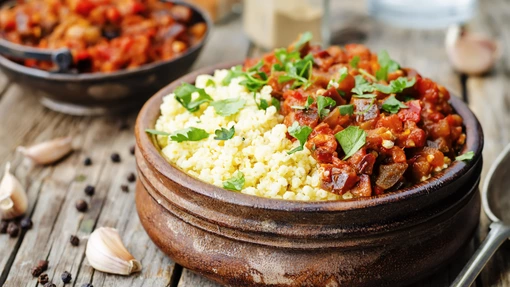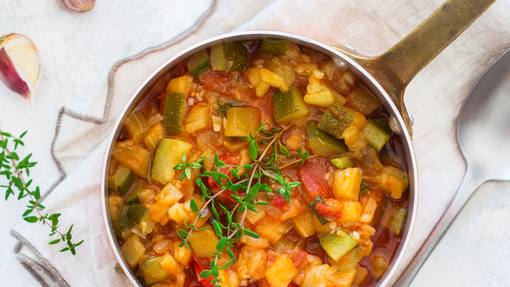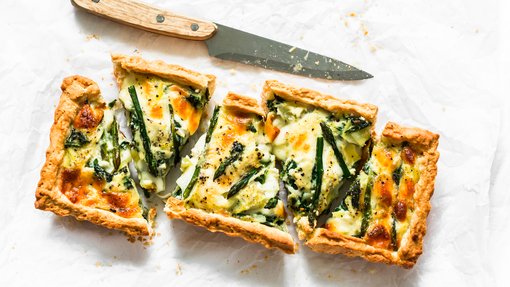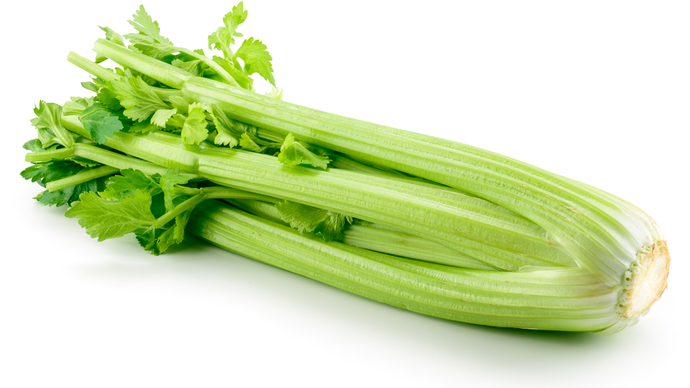Celery comes from the same family as carrots. It’s high in water content and contains many vitamins and minerals as well as being a good source of fibre. Few people realise that the leaves are edible too so the whole veg can be eaten - leaves, stalks and heart.
How to store
How to store fresh celery
Celery is best stored at the bottom of the fridge.
Freezing celery
Celery can be frozen in a sealed bag or container for up to 3 months.
Storing cooked celery
Store in an airtight container in the fridge for up to 2 days.
Celery top tips
How to freeze and defrost
To freeze: Store celery in an airtight container in the freezer, or add to a stock bag in the freezer along with onion and carrots as preparation for a stew or soups.
To defrost: When you take food or drink out of the freezer, it’s important to defrost it safely. Don’t defrost at room temperature. Ideally, defrost fully in the fridge and use within 24 hours. Or, use a microwave on the defrost setting directly before cooking or reheating.
Eating the whole food
Celery leaves are packed with flavour. Chop like a herb to add a celery bite, toss tender leaves into salads or add to soup, stocks, bases or sauces.
Be fabulous with leftovers
Leftover celery is great chopped up raw for salads and dips. You can also chop and cook it along with onion and carrot as a flavourful base for soup, stews and pasta sauces.
Buying tips
If you use celery mainly for cooking, think about swapping fresh for a frozen mix of carrots, celery and onion (sometimes called a base mix). Frozen foods last a long time in the freezer, you can use as much as you need when you need to and they can often be a cheaper option.
Perfect portions
Use our portion calculator for a quick and simple way to check how much of this food to serve at mealtimes.
Valuing your Celery beyond the price tag
Goodness in food
Your food is more than its shape, colour and price. Your food has an important role to play to help keep you healthy and with enough energy to live your life how you wish to.
- Contains many vitamins and minerals including potassium and calcium which are important for a healthy heart.
- A high source of fibre which helps maintain a healthy digestion.
- A good source of flavonoids which have anti-inflammatory and protective effects on the cardiovascular system.
Food story
By the time your food arrives in your home, it’s already been on quite a journey starting with how it is made or grown and how your food reaches the supermarket.
So please help our food to finish its story in the most sustainable way, ensuring the planet’s resources that’s already used are put to good use. Take care of your food when it’s in your home and ensure every edible morsel is eaten - and that your food doesn’t end up in the bin!
Why not try these delicious recipes to use up Celery
Save those veg from the bottom of the fridge and give them a new lease of life in this inventive curry which is as light as it is healthy. We’ve used madras curry paste (for added kick) – you can choose your favourite. Give it an authentic touch with basmati rice, too.

This hearty stew is delicious, filling and uses up your leftover veggies. What's not to like?

Puff pastry transforms unappetizing left-over vegetables into a brand new dish!






